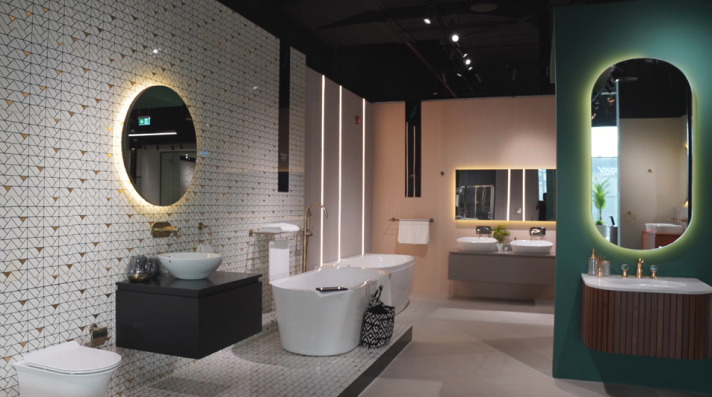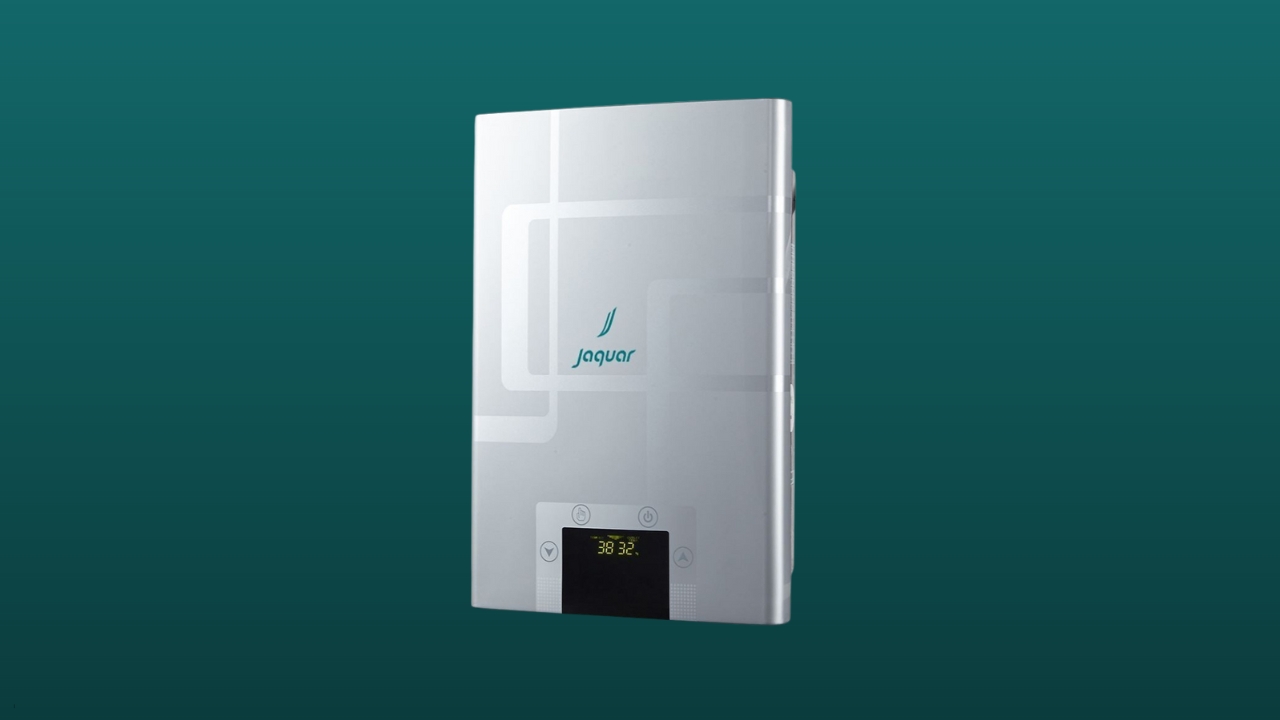The daily comfort of a warm relaxing shower depends on an efficiently designed water heating system. However, conventional water heaters can be energy-guzzling appliances. Advancements in sustainable technologies now enable options like on-demand tankless heaters, solar-powered systems, heat pumps and more, allowing for energy-efficient hot water in bathrooms.
This comprehensive guide covers the latest water heating solutions for bathrooms aligned with green living. We explore both conventional and renewable system types, sizing considerations, operating costs, pros and cons, installation and maintenance best practices. With an understanding of the available options, homeowners can make informed water heater selections lowering environmental footprints without compromising on a soothing hot shower.
Factors to Consider for Choosing the Right Water Heater
Key aspects influencing the choice of optimal water heating:
- Usage requirements – Frequency of use, peak demand periods, typical volumes needed per day
- Energy source availability – Electricity, gas, solar exposure, groundwater
- Space constraints – Available utility room size and layout
- Type of usage – Multiple sinks/showers, combination appliances, centralized systems
- Cost considerations – Operating expenses and installation costs
- Smart capabilities – Demand optimization, voice controls, mobile connectivity
- Longevity requirements – Warranty coverage, parts availability
- Local climatic conditions – Recommended equipment ratings for ambient temperatures
The ideal system efficiently aligns performance to individual needs.
7 Best Water Heaters for Energy-Efficient Bathrooms

Credits: Jaquar
Here are top water heating solutions for contemporary sustainable bathrooms:
Tankless Water Heaters
On-demand tankless heaters deliver continuous hot water without storage:
- Heat water as needed instead of maintaining standby storage tanks. Saves energy.
- Compact space-saving units mounted on walls or under cabinets.
- Unlimited hot water capacity. Simultaneous multi-outlet support.
- Responsive temperature controls. No runout during sequential use.
Endless hot water without waste makes tankless heaters efficient.
Heat Pump Water Heaters
Heat pump heaters extract ambient thermal energy for water heating:
- Absorb heat from surrounding air to heat water, saving energy.
- Reduces electrical costs by 60% compared to conventional electrical heaters.
- Split-system design allows separate installation of tank unit and heat pump.
Super energy-efficient systems using free environmental heat.
Solar Water Heating Systems

Credits: Canva
Solar thermal panels harness the sun's energy for water heating:
- Renewable energy system with minimal ongoing costs.
- Roof-mounted flat plate or evacuated tube collectors.
- Solar preheating reduces conventional system electrical/gas usage.
- DIY-friendly kits available. Rebates and tax credits offset costs.
Solar systems utilize nature's energy for sustainable hot water.
Condensing Gas Water Heaters

Credits: Jaquar
High-efficiency condensing models extract more heat from exhaust gases:
- Condense water vapor in exhaust gases to recover heat otherwise lost.
- 5-10% higher efficiency over standard gas-powered tank heaters.
- Taller design requiring more headroom for exhaust venting.
Condensing heaters maximize the heat utilized from gas supplies.
High-Efficiency Electric Water Heaters
Optimized electric heaters minimize standby energy wastage:
- Improved insulation retaining heat longer reducing reheating.
- Solid-state controls instead of pilot lights further improving efficiency.
- 30-50% more efficient compared to standard electric water heaters.
Even basic electric heaters are now substantially more efficient.
Smart Water Heaters
Connected heaters optimize efficiency through automation:
- Real-time usage monitoring and heating optimization.
- Remote temperature adjustments and scheduling aligned to usage patterns.
- Voice activated controls through integration with smart home ecosystems.
Intelligence delivers just the right amount of hot water when needed.
Hybrid Water Heating Systems
Dual system combinations optimize hot water delivery:
- Most common is a tank equipped with a supplemental heat pump or solar preheating.
- Alternately use solar or conventional heating depending on availability.
Hybrids maximize efficiency by adapting to external conditions.
Key Considerations When Selecting Water Heaters

Credits: Canva
- Critical factors that ensure selecting the optimal system:
Type of Energy Source:
Evaluate available electric, gas or alternate energy connections.
Daily Usage Pattern Analysis:
Analyze peak demand periods, temperature requirements and total volume needed daily.
Sizing Appropriately:
Incorrect sizing increases operating costs and compromises reliability.
Placement Logistics:
Ensure adequate clearances for servicing and fitted correctly for exhaust ventilation.
Safety Certifications:
Trusted testing agencies validate electrical and fire safety.
Build Quality and Warranty Coverage:
Robust design backing with adequate warranty coverage period indicates reliability.
With careful consideration of key variables, the most suitable and efficient system emerges.
Sizing Water Heaters Appropriately for Optimal Performance

Credits: Jaquar
Right-sized systems deliver the best efficiency and performance. Follow these guidelines:
- For storage-tank heaters, ensure adequate hot water volume storage for peak usage periods.
- Over sized units cycle less but lose more standby heat. Undersized units struggle to recover during sequential use.
- For tankless systems, choose appropriate maximum flow rate capacity covering simultaneous use across outlets.
- Consider flow rate and temperature rise of appliances like low-flow showers for tankless sizing.
Accurately factoring in key variables prevents under or over buying capacity.
Installation Best Practices for Water Heaters

Credits: Canva
Correct installation ensures safety and peak performance:
- Carefully review the original manufacturer manual and comply fully.
- Choose the installation area wisely allowing adequate side and top clearance for servicing access.
- For gas systems, specialized gas suppliers approved plumbers required for safety.
- For electric heaters, hire licensed electricians ensuring proper grounding and circuit protection.
- Validate optimal water pressure, adequate electrical amperage circuits, correctly sized gas lines.
- Cautiously test for leakages, inspect exhaust venting functionality before first use.
Following stringent protocols optimizes reliability and hazard avoidance.
Specialized Systems for Commercial and Industrial Usage
Commercial scale applications employ heavy-duty solutions:
- Large banks of modular tankless heaters supporting hundreds of lavatory and kitchen sinks in facilities like airports and stadiums.
- Custom centralized boilers powering all hot water needs for campuses.
- Solar preheating lowering gas usage paired with boilers providing redundancy for hospitals.
- Heat pumps using waste heat from air conditioning systems for hotels.
- Steam-based systems used in industrial processes.
Purpose-built technology at a massive scale caters to intensive needs.
Common Myths and Misconceptions About Water Heaters
Some widespread water heater myths that are untrue:
Myth: Tankless heaters deliver unlimited hot water instantly.
Reality: There is a lag from initiating flow to reaching temperature equilibrium. Initial hot water volumes are limited by flow rate.
Myth: Solar suffices for all needs year-round.
Reality: Backup heating supplements solar for cold overcast periods. Solar preheats but doesn’t eliminate conventional system needs.
Myth: Heat pumps work well in all ambient conditions.
Reality: Efficiency reduces significantly in extreme low temperatures. Suitable for temperate climates best.
Myth: Tankless heaters cost much more to operate than conventional systems.
Reality: Comparable or lower operating costs for modern gas tankless systems relative to tanks.
Accurate information prevents misconceptions impacting technology selections.
Water Heater Maintenance Best Practices

Credits: Canva
Regular maintenance improves lifespan and efficiency:
- Annual inspections ensure safety mechanisms like temperature-pressure relief valves remain intact and pipes free of leaks.
- Flushing heaters annually clears sediment accumulation from supply lines that can lead to overheating failures.
- Inspect anode rods on electric water heaters every 2-3 years for corrosion replacing if depleted.
- Descale heaters in hard water areas every 6 months using citric acid cleaners preventing mineral buildup.
- Validate insulation integrity for storage tanks to minimize standby heat loss.
Like any appliance, proper preventive maintenance keeps hot water systems working efficiently for years.
Cost Saving Opportunities with Efficient Water Heaters
Intelligent heating optimizes energy and water costs:
- Adjustable thermostats lowering temperatures just enough to suffice saves electricity costs.
- Low-flow showerheads and faucet aerators reduce hot water volumes needed.
- Recirculation pumps save water otherwise wasted awaiting hot water at taps.
- Pipe insulation limits heat loss and reduces reheating needs.
- Scheduling and smart controls limit heating to usage hours only.
Thoughtful design choices compound into substantial cost savings.
Why Choose Jaquar For Your Bathroom Heating Needs?
As a reputed complete bathroom solutions brand trusted for superior quality, Jaquar offers thoughtfully engineered water heating systems for homes:
- Innovative instant heat geysers like Elena with advanced safety features
- Dual heat control avoiding dry heating and saving electricity
- Corrosion-resistant inner tanks with long warranty up to 7 years
- Excellent service through 10000+ network service centers
- Customized sizing suiting family needs from 25L to 35L capacities
Bring home the very best of reliability, efficiency and convenience by trusting your bathroom heating needs to Jaquar’s expertise.
Conclusion
The quest for sustainable living need not compromise the comforts of a rejuvenating hot shower. With advanced systems like renewable solar heating, energy-recycling heat pumps and instant continuous tankless heaters now readily available, homeowners can easily achieve energy-efficient water heating aligned to environmental consciousness. However, thoughtfully assessing usage needs and patterns, installation logistics, operating costs and features remains key to determining the optimal system on a case-by-case basis. The exciting spectrum of technology combinations presented here provides the building blocks to create your dream sustainable bathroom without giving up the luxury of long, relaxing showers.


